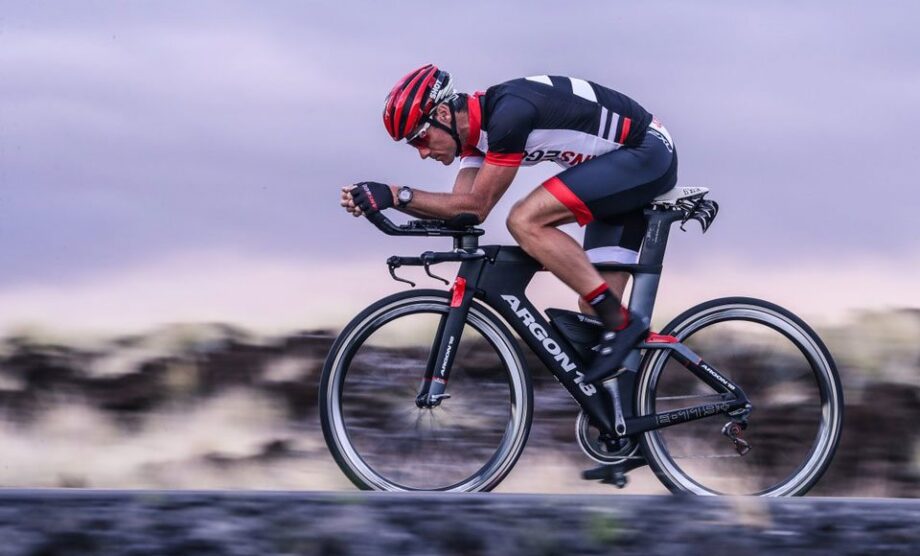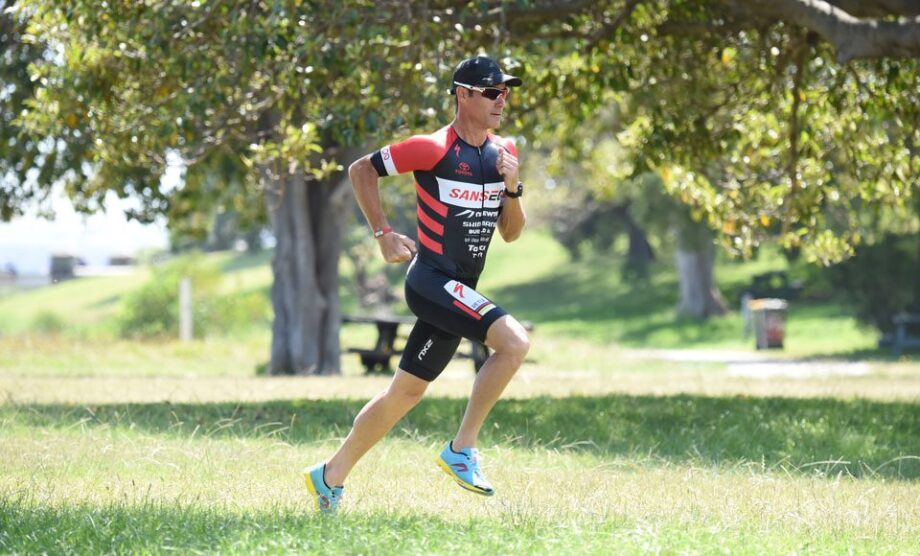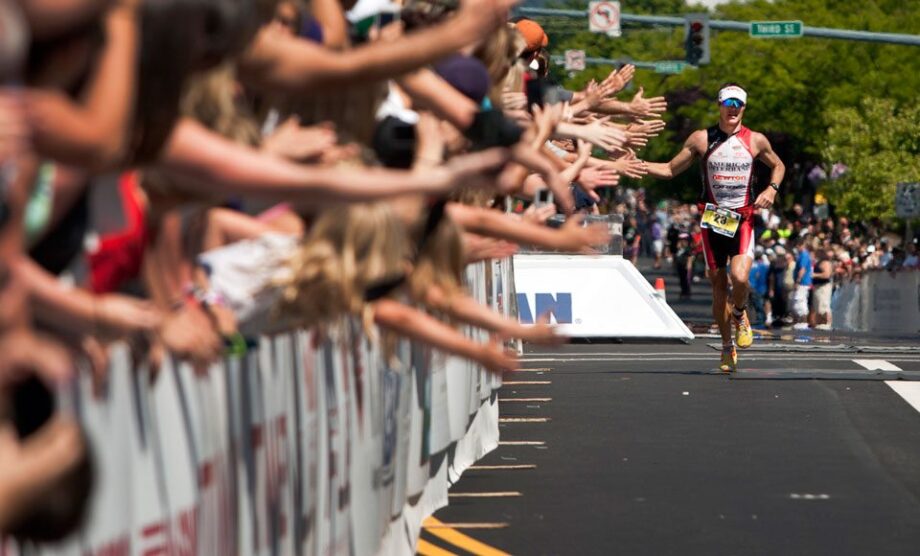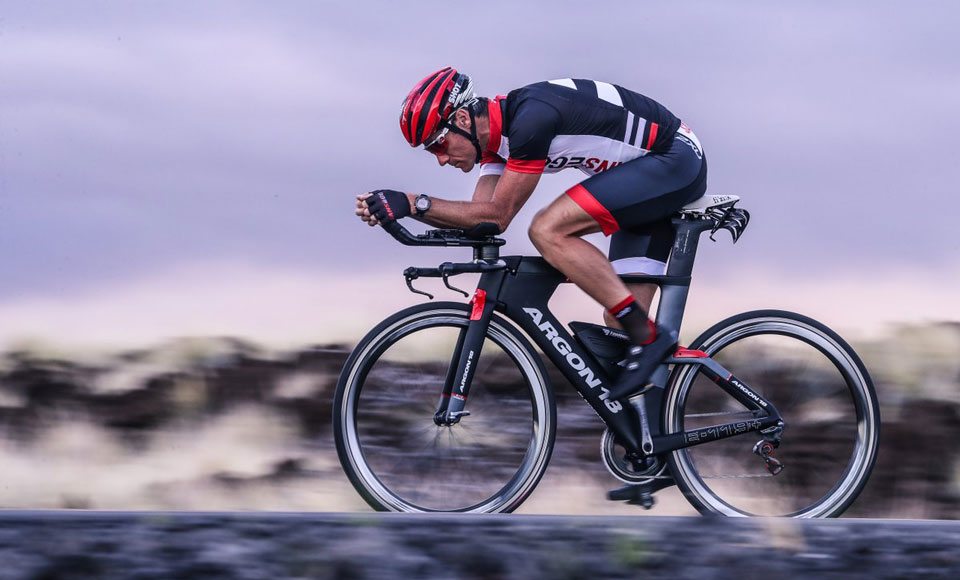Triathlon season is upon us and that means your office colleagues are likely gearing up for one of the most gruelling team sports to ever be thrust upon an average suit behind a desk.
Whilst the Australian Corporate Triathlon series is designed to promote team building in a friendly fitness environment, it’s important to highlight the serious amount of training, dedication and sacrifice required in order to make it to the end in one piece.
Endurance running, cycling and swimming are the disciplines of the game and the goal is simple – conquer the distance in as little time as possible. Of course no human is ever born with Ironman capabilities of stamina and strength. That’s why we tapped Craig “Crowie” Alexander, a three-time Ironman world champion and 2XU ambassador for some expert advice.
Your steep learning curve into the competitive world of corporate triathlons couldn’t be in safer hands. Listen, then run, cycle and swim like the wind.
What’s A Safe Beginner’s Way To Train For A Corporate Triathlon?
“Start easy,” says Alexander. “It might be a good idea to join a group with some more experienced athletes to help you get into it.”
The Ironman world champion also says that consistency in training is key, and that making sure you include some endurance, strength and speed work into your daily workout is key. The right training gear is also a mandatory according to Alexander.
“I swear by my 2XU compression tights for training and recovery,” he says. “There’s no way I could back up for training day after day without wearing the right gear, and 2XU compression is proven by the Australian Institute of Sport to aid both performance and recovery.”
What Can You Do If You Suffer Niggling Pains Like Runner’s Knee?
The answer here is pretty straight forward if you begin to experience pains in any of your joints or muscles during training. “Seek expert medical advice for any injuries,” says Alexander.
“The key to successful, consistent training is to stay injury-free, so deal with any potential issues right away before they become more serious injuries that might sideline you for weeks or months.”
Should Triathlon Training Be Focused More On Endurance, Speed Or Power?
“I believe triathlon is a strength-based sport,” says Alexander. “So focusing on strength and endurance is always important.”
“You do need to incorporate speed periodically as well to get you ready for race day.”
What Kind Of Diet & Training Schedule Should We Be Following?
“A common sense, sustainable eating plan is best as it helps the body fuel up and recover,” explains Alexander. More importantly though, the Ironman tells us that cheat days are absolutely okay.
“It’s about lifestyle and being happy, and enjoying the training and the lifestyle in a sustainable way. I incorporate protein or protein shakes after intense workouts to promote recovery.”
Is It A Bad Idea To Train In And Around The CBD Where There’s Built Up Traffic?
The answer is pretty simple according to Alexander. “If traffic pollution is significant, I would stay indoors as much as possible. It’s definitely much safer, also.”
Is There A Certain Time You Should Or Shouldn’t Train?
According to the expert himself, sleep is very important for recovery and overall quality of life. Alexander says that he always tries to avoid training late in the evening but in the end it comes down to time management and work/life commitments.
“Sometimes you just need to fit the training in whenever you can. Aim for a training program that you can sustain long-term.”
How Do You Prevent Injuries When Training For A Corporate Triathlon?
Alexander swears by the apparel he uses as a prime factor quick recovery.
“2XU compression tights have been independently proven by the AIS to improve muscle alignment, reduce the risk of injury and reduce muscle damage, soreness and fatigue,” says Alexander.
“The right compression gear helps reduce the risk of injury in training by improving muscle alignment and reducing the prevalence of micro-tears and damage. Combine this with good training and recovery practices, a consistent and manageable training schedule and core stability work to focus on physical efficiency and correct biomechanics, and you’ll be taking good care of yourself.”
There’s also the added benefit of ongoing body management and maintenance, such as massages.
The Best Way For A Corporate Triathlon Participant To Recover?
“Proper sleep, diet and recovery routines are key to effective recovery,” stresses Alexander.
How Can You Prepare Yourself Mentally For A Corporate Triathlon?
The experts say the obstacle is always in your own head, so get a good grasp of it.
“The regular physical training and discipline required to complete an effective training program also helps condition your mind for race day,” says Alexander. “Understanding what you’re motivated by can be a powerful driver.”
Need Some Apparel Assistance…
Coolest Cycling Apparel Brands For Men
Running Shoes That Will Get You Over The Finish Line First
 1/3
1/3
 2/3
2/3
 3/3
3/3
